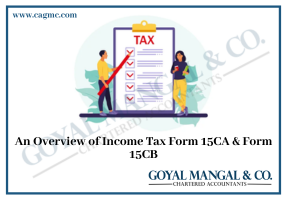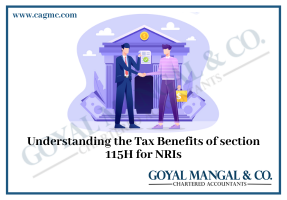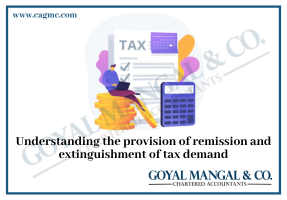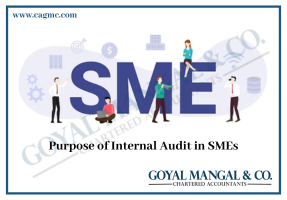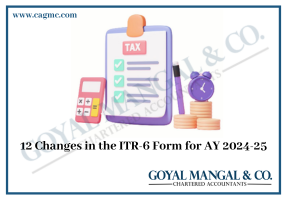
Tax residency certificate (TRC) in India is a crucial document that establishes an individual or business’s residency status for tax purposes in a particular country. It serves as proof of residency, and various nations have their own distinct features and types of TRCs. Understanding the significance of this certificate is essential for individuals and businesses to navigate the complexities of international taxation and ensure compliance with the respective tax laws. Let’s delve into the world of tax residency certificates, exploring their features, types, and utmost importance in facilitating cross-border financial activities.
Meaning of Tax Residency certificate
A tax residency certificate (TRC) is an official document issued by a country’s tax authorities to confirm an individual or business entity’s tax residency status. It serves as evidence that the holder is considered a tax resident in the issuing country for a specific period.
Tax residency certificates are often required when individuals or businesses engage in cross-border financial activities to claim benefits under double taxation avoidance agreements, avail reduced withholding tax rates, or establish eligibility for certain tax exemptions. The certificate helps prevent tax evasion and ensures proper adherence to international tax regulations.
The Income Tax Department Issues Tax Residency Certificates to Indian residents who earn money from countries with which India has a has a double taxation avoidance agreement. It is sent to the payer so that foreign companies can paas Indian residents whatever advantages they get from the DTAA.
Meaning of DTAA
DTAA, or Double Taxation Avoidance Agreement, is a treaty signed between two countries to prevent individuals and businesses from being taxed twice on the same income. It aims to eliminate double taxation by providing clarity on tax rules and defining the taxing rights of each country. DTAA promotes international trade, investment, and economic cooperation by ensuring fair and predictable taxation for cross-border transactions.
Who needs a TRC?
Anyone or any business that makes money in both their home country and where they live will have two sources of income. The taxpayer must fill a return that lists all his or her income from all sources. Without a system acceptable to any Government, the taxpayer will have to pay income tax in each country. With a Tax Residency Certificate from the taxpayer’s home country, he or she can avoid being taxed twice.
Law governing TRC in India
Sections 90 and 90A of the Income Tax Act of 1961 give the Indian government the power to enter into valid agreements s with any other country or organization that protect taxpayers from being taxed twice.
Section 6 of the Income Tax Act of 1961 oversees all the clauses, rules, and processes that have to do with Tax Residency Certificates.
Meaning of Indian Resident
A person is considered to have been a resident of India in any previous year if they spent at least one hundred eighty-two days there during that year, or if they spent a total of three hundred and sixty-five days there over the preceding four years, at least 60 of which were spent in Indian the current year.
Steps for getting Tax Residence Certificate
Following steps need to be followed to get a tax residency certificate
- Eligibility Check: Ensure that you meet the criteria for tax residency in India based on the number of days you have stayed in the country during the financial year.
- Application: Apply for Tax Residency Certificate to the tax authorities, appraising officer. The application is typically filed with the income tax department.
- Supporting Documents: Gather and provide necessary documents, such as proof of stay, passport copies, and other identification documents, to support your claim for tax residency.
- Form 10FA: Download and fill form 10FA and submit it to appraising officer.
- Verification: The tax authorities will verify the information provided and may assess your residency status based on the documents submitted.
- Issue of TRC: If your application is approved, the tax authorities will issue the Tax Residency Certificate in Form 10 FB, which will confirm your tax residency status for the relevant financial year.
- Validity: The TRC is generally valid for one financial year and needs to be renewed annually if required.
- Compliance: Ensure compliance with any additional requirements or reporting obligations related to the TRC as per the tax regulations in India.

How is TRC obtained by a non-resident assessee?
The authorities of the country or the designated territory where the taxpayer states to be a resident may issue a TRC certificate to a taxpayer who is not an Indian resident. The following details must be included in the Tax Residency Certificate format:
- The applicant’s name.
- The taxpayer’s applicant’s status (as an individual, business, or other type of entity)
- Nationality, if the applicant is an individual
- In the case of other applicants, the country or a specific territory of incorporation or registration.
- If no such identification exists, then a special number based on which a person is recognized by the government of that nation/specific territory, Tax identification number of the taxpayer in the country of residence or specified territory.
- Residential status for tax purposes.
- The time frame for which the TRC is relevant.
- The applicant’s full address for the duration for which the certificate is valid.
- The above details shall be provided by the non-resident taxpayer in Form 10F (3) The certificate must be confirmed by the government of the nation or designated territory where the applicant is claiming to be a resident for tax purposes.
Why is Form 10F Filing important?
Form 10F submission is crucial for the following reasons:
- You can claim TDC through the form at a reduced fee
- NRIs without PAN cards who receive money from India possess a full Form 10F.
- For NRIs, the IT department has made compulsory to file Form 10F to assist them by lowering the amount of tax they must pay.
- By lowering TDC on payments received and sent from India, this form benefits NRIs.
- According to a regulation made by the Central Board of Direct Taxes (CBDT), NRI taxpayers without PAN are exempt from filing Form 10F till the end of March 2023.
- This board-approved exemption is intended to help NRI taxpayers who must obtain a PAN card specifically for the purpose of submitting Form 10F electronically.
Types of Tax Residency Certificate
As per law there is no specific type if TRC, but it can be classified as two types:
- Resident Indian Certificate (RIC): This certificate is issued to individuals who are considered “resident” for tax purposes in India. An individual becomes a “resident” if they meet specific conditions related to the number of days they stay in India during a financial year.
- Non-Resident Indian Certificate (NRC): This certificate is issued to individuals who are considered “non-resident” for tax purposes in India. Non-resident Indians can apply for this certificate to claim tax benefits, particularly when they have income in India and may be eligible for lower withholding tax rates under the Double Taxation Avoidance Agreements (DTAA).
Features of Tax residency certificate
A tax residency certificate is a document issued by the tax authorities of a country to determine an individual’s tax residency status for a specific period. Here are some features of a tax residency certificate:
- Identification of Residency Status: The primary purpose of a tax residency certificate is to identify whether an individual qualifies as a resident or non-resident for tax purposes in the issuing country.
- Applicable Period: The certificate specifies the time frame for which the individual’s tax residency status is valid.
- Criteria for Residency: The certificate may outline the criteria used to determine tax residency. This typically includes the number of days an individual must stay within the country’s borders during a given financial year to qualify as a resident for tax purposes.
- Double Taxation Avoidance: A crucial aspect of tax residency certificates is their role in availing benefits under Double Taxation Avoidance Agreements (DTAAs) between countries.
- Supporting Document for Tax Compliance: The tax residency certificate serves as an official document to support an individual’s tax compliance in both their home country and the foreign country where they have income or financial interests.
- Application Process: To obtain a tax residency certificate, an individual typically needs to apply to the tax authorities of the country where they seek tax residency status.
- Renewal and Validity: Depending on the country’s tax laws, tax residency certificates may need to be renewed periodically, usually on an annual basis.
Benefits of Tax Residency Certificate
The Tax Residency Certificate offers several advantages to the taxpayer.
- Avoidance of double taxation on foreign income under DTAA.
- Eligibility for lower withholding tax rates on certain types of income.
- Simplified tax compliance and clarity on tax residency status.
- Facilitation of foreign investments and business transactions.
- Proof of tax residency for immigration and visa purposes.
- TDS will be lower
Final words
In conclusion, the tax residency certificate is a crucial document that determines an individual’s tax residency status, either as a resident or non-resident in a specific country. With two main types, Resident Indian Certificate (RIC) and Non-Resident Indian Certificate (NRC), it serves as proof of residency for a defined validity period. The certificate enables individuals to avail benefits under Double Taxation Avoidance Agreements (DTAA) and reduce withholding tax rates on certain types of income. Obtaining this certificate ensures compliance with tax obligations and facilitates efficient management of financial affairs, both domestically and internationally. Understanding its features and benefits is essential for individuals seeking to navigate cross-border tax implications effectively.


